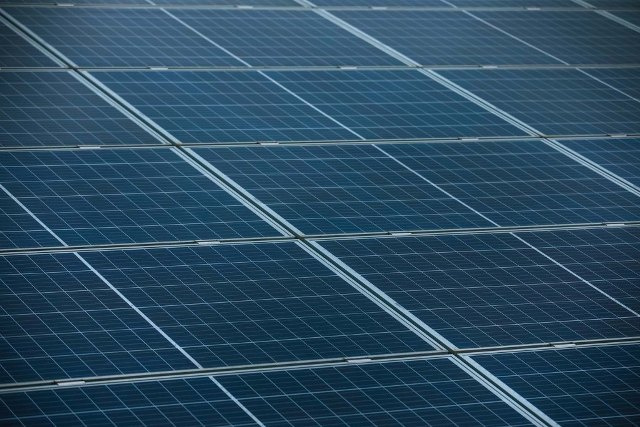The Joe Biden administration has announced measures to protect domestic solar manufacturers from Chinese competition, signaling a significant policy shift aimed at bolstering the U.S. clean energy sector.
The White House revealed plans to end a tariff exemption for imported bifacial solar panels and to streamline subsidies for projects utilizing American-made products, Reuters news report said.
As part of President Joe Biden’s broader strategy to combat climate change, these moves are intended to enhance investment in U.S. manufacturing of clean energy products and reduce dependence on Chinese imports. The White House will eliminate a two-year-old trade exemption that previously allowed bifacial panels to avoid duties. Initially a niche product, bifacial panels have now become the dominant technology in utility-scale solar projects.
In addition, the U.S. will revoke a waiver on tariffs for solar panels produced by Chinese companies in Malaysia, Cambodia, Thailand, and Vietnam. This waiver, introduced two years ago at the request of U.S. project developers relying on low-cost imports, is being rescinded in light of expanded U.S. manufacturing capabilities. The White House noted that American producers are now contending with a surge in Chinese solar manufacturing capacity, which has led to depressed prices.
“These actions will provide a boost to domestic solar producers, but the impact of Chinese oversupply on U.S. investments in the solar market remains a challenging issue,” stated John Podesta, Joe Biden’s senior adviser for international climate policy, during a call with reporters.
Treasury Department has issued new rules to simplify how clean energy project developers can qualify for a tax credit designed to incentivize the use of U.S.-made equipment. This 10 percent domestic content bonus is an addition to a 30 percent credit for renewable energy facilities under the Inflation Reduction Act, Joe Biden’s landmark climate legislation.
Previously, project developers had criticized the complex guidelines for claiming the bonus credit. To qualify, the law requires that 40 percent of the cost of a project’s manufactured products be made in the United States. The new rules will allow developers to use default cost percentages set by the Department of Energy to meet this requirement.
The Treasury Department is also considering additional regulations to assist offshore wind developers in qualifying for the domestic content bonus and is exploring incentives for the manufacturing of solar wafers, essential components for solar cells.
Qcells, a division of South Korea’s Hanwha, which is investing $2.5 billion in U.S. solar factories, praised the administration’s measures as critical to creating tens of thousands of jobs in America.

